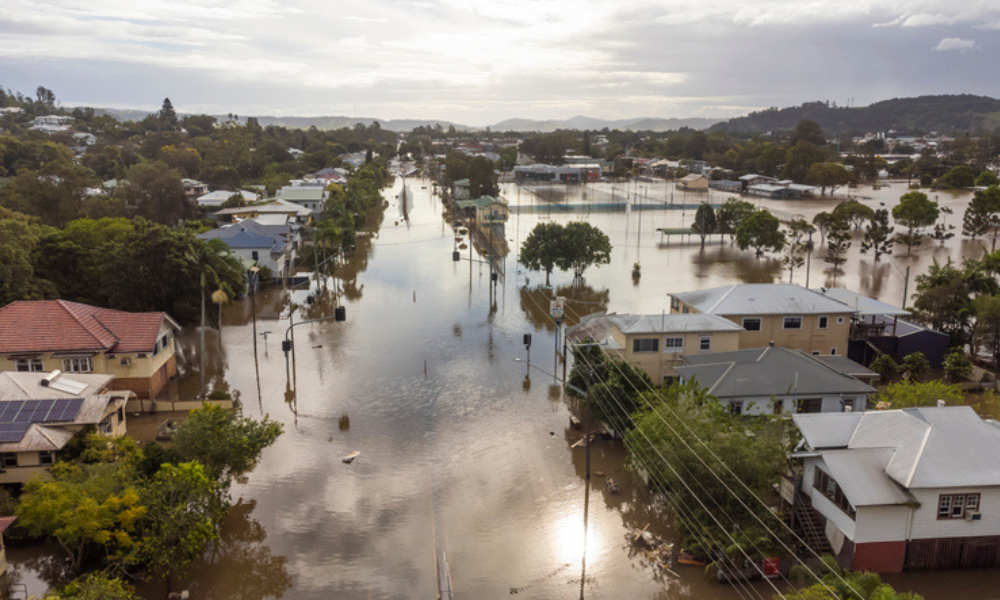Properties exposed as wild weather increases and fossil fuel use declines

Billions of dollars of Commonwealth Bank home loans are exposed to climate-change risk, according to a new study.
More than $31 billion in CBA mortgages are for homes in areas exposed to increasing extreme weather, while $14 billion in mortgages are in communities economically dependent on coal, the analysis found.
A CBA climate risk assessment of its mortgage portfolio found that about 38,000 properties, with mortgages worth $11 billion, have a high risk of exposure to cyclones, 56,000 ($19 billion) are at risk of floods and 5,000 ($2 billion) are at risk of fire, The Sydney Morning Herald reported.
The analysis was part of CBA’s first climate report, which assessed how the physical and transition risks of climate change could impact the bank’s business.
CBA found that about $31.2 billion in mortgages were for homes in areas “exposed to increasing risk such as cyclone-exposed coastal regions, low-lying flood plains and rural areas in close proximity to the urban fringe,” the report said. “In particular, peril risk ratings reveal increases in cyclone, flood and fire risk by 2050.”
The report said that cyclones were predicted to continue forming further south, having the potential to impact populated areas not previously exposed to cyclone risk.
“If this happened in the north of NSW, where construction standards have not been designed to resist cyclones, material losses could be observed which are not currently reflected in our current estimates,” the report said.
Read next: $25 billion in coastal property threatened by climate change – report
The report also considered the possibility that borrowers had insufficient insurance, as well as assessing loan-to-value ratios, according to the Herald. Mortgages with higher LVRs are riskier for lenders, who are less likely to recoup their money if the borrower defaults.
The report also analysed employment data from the Australian Bureau of Statistics to determine the impact of changes to Australian coal export demand on areas reliant on the coal industry. It found that communities with workforces highly concentrated in the fossil fuel sector were likely to take a significant hit under various scenarios aligned with the Paris climate agreement.
“The concentration of a local area to the fossil fuel value chain increases the risk that indirect employment and broader economic value, including residential property values in these regions, is reduced as a result of a significant reduction in global coal demand,” the report said.
The Reserve Bank of Australia has previously cautioned that property in areas exposed to climate change could see values fall and leave banks with less protection in the event of mortgage defaults, the Herald reported.
About 3.5% of dwellings in Australia fall under an international definition of being at “high risk” from climate change, the RBA said in a paper. However, that rise in climate risk hasn’t been reflected in property prices, the central bank said.



